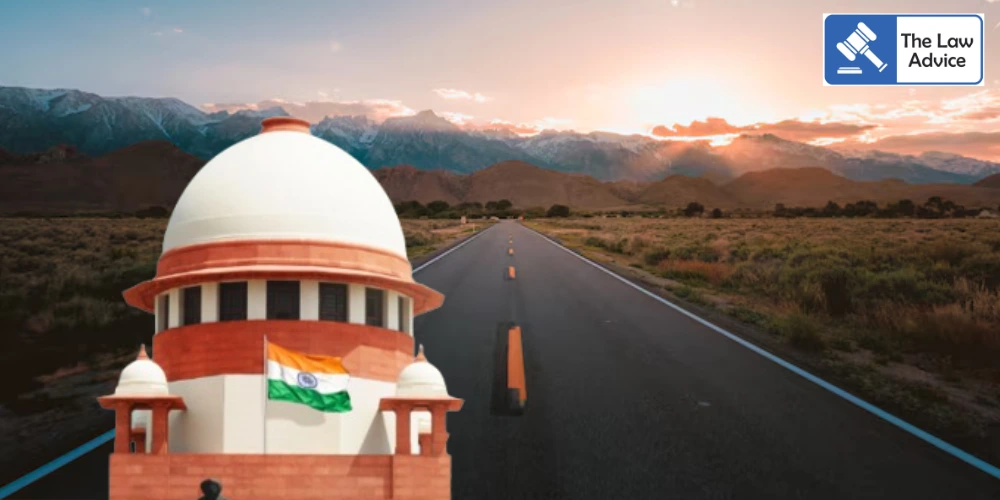
On August 18, 2025,
The Supreme Court of India reserved its judgment on the petition filed by the National Highways Authority of India (NHAI) challenging the Kerala High Court’s order that suspended toll collection at the Paliyekkara toll plaza on National Highway 544 (NH 544) in Thrissur district, Kerala. The High Court had issued the suspension following severe traffic congestion and the poor condition of the Edappally-Mannuthy stretch, raising questions about the legitimacy of toll collection under such circumstances.
The Kerala High Court’s August 6 judgment had temporarily halted toll collection for four weeks at Paliyekkara. The Court noted that the stretch had been poorly maintained, resulting in prolonged traffic jams and delays, severely affecting commuters. The High Court emphasized that toll fees are collected under the presumption that the road is motorable and traffic moves efficiently.
The Court held that the public pays toll fees based on trust, and when the road is in a condition that impedes travel, this trust is breached. It observed that toll collection cannot be enforced when road conditions hinder public mobility.
During the hearing, the three-judge bench, comprising CJI BR Gavai, Justice K Vinod Chandran, and Justice NV Anjaria, expressed concern over the massive 12-hour traffic block that occurred over the past weekend.
Justice Chandran remarked on a specific incident where a lorry overturned into a pothole, highlighting the dangerous state of the highway. Responding to the Solicitor General of India Tushar Mehta, who represented NHAI, Justice Chandran said, “The lorry did not fall by chance—it turned over because of the pothole.”
CJI Gavai questioned the fairness of collecting ₹150 toll for a journey that should take approximately one hour but stretched to 12 hours due to traffic congestion. He noted, “Why should a commuter pay Rs 150 if it takes 12 hours to traverse a 65 km stretch?”
While SG Mehta explained that service roads were constructed as alternatives where underpasses are being built, the bench pointed out that monsoon-related disruptions had worsened the traffic situation.
Guruvayoor Infrastructure Ltd, the concessionaire managing toll collection, also challenged the Kerala High Court’s order. Senior Advocate Shyam Divan argued that the NHAI had contracted PSG Engineering for constructing underpasses at bottleneck areas and that any delays or traffic disruptions were their responsibility, not the concessionaire’s.
Divan emphasized that Guruvayoor Infrastructure maintained its designated road sections properly and argued that the High Court’s order unfairly halted revenue collection from areas under their control. He claimed that the toll suspension had already caused losses of ₹5–6 crores over 10 days.
Legal Implications
The case raises a significant legal principle: toll collection is contingent upon road usability. Courts have reinforced that the public’s right to safe and efficient travel is paramount, and toll fees cannot be imposed when conditions make the highway effectively unusable.
The Kerala High Court’s decision reflected this principle, balancing public convenience against infrastructure development and private contracts. The Supreme Court’s upcoming judgment will be closely watched as it may set a precedent for handling toll disputes arising from poor road maintenance or contractor delays.
The bench also indicated that disputes between NHAI and the concessionaire could be resolved through arbitration, separating the responsibility of road maintenance from toll collection rights.
Commuters had expressed frustration at the prolonged traffic jams, often lasting up to 12 hours, while still being expected to pay the toll. The situation has sparked wider debate on the accountability of NHAI and contractors for maintaining highways, especially during adverse conditions such as monsoons.
As the case stands, the Supreme Court is expected to consider all aspects, including monsoon-related difficulties, contractor responsibilities, toll fairness, and public interest, before delivering its verdict.
Website designed, developed and maintained by webexy